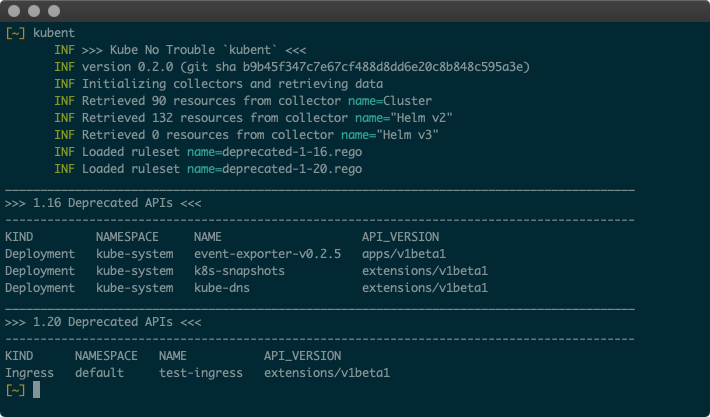We've just received an e-mail from GCP informing us that our clusters are currently using deprecated Beta APIs and that we need to upgrade to the newest API version.
We have 3 clusters running multiple resources in multiple namespaces so it would be a bit painful having to go through all of them detecting which ones are obsolete.
The ones we control such as services, deployments, horizontalpodautoscalers, poddisruptionbudgets etc, those ones are already updated.
But we have many services whose manifest files are automatically generated such as Spinnaker services generated by Halyard, or ElasticSearch generated by Elastic Operator, etc.
Is there any way to filter all resources by the API version, or any way to detect deprecated resources across all namespaces?

